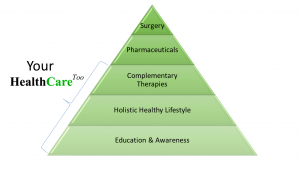Collaborative Holistic Care

Current treatments and the dominant model of mental health care do not adequately address the complex challenges of mental illness, which accounts for roughly one-third of adult disability globally. These circumstances call for radical change in the paradigm and practices of mental health care, including improving standards of clinician training, developing new research methods, and re-envisioning current models of mental health care delivery. Because of its dominant position in the US health care marketplace and its commitment to research and innovation, Kaiser Permanente (KP) is strategically positioned to make important contributions that will shape the future of mental health care nationally and globally.
This article reviews challenges facing mental health care and proposes an agenda for developing a collaborative care model in primary care settings that incorporates conventional biomedical therapies and complementary and alternative medicine approaches. By moving beyond treatment delivery via telephone and secure video and providing earlier interventions through primary care clinics, KP is shifting the paradigm of mental health care to a collaborative care model focusing on prevention. Recommendations are to expand current practices to include integrative treatment strategies incorporating evidence-based biomedical and complementary and alternative medicine modalities that can be provided to patients using a collaborative care model. Recommendations also are made for an internal research program aimed at investigating the efficacy and cost-effectiveness of promising complementary and alternative medicine and integrative treatments addressing the complex needs of patients with severe psychiatric disorders, many of whom respond poorly to treatments available in KP mental health clinics.
Increasing Use of Complementary and Alternative Treatments in Mental Health Care
In the context of the limitations of available conventional biomedical treatments, accumulating research findings are providing evidence for both safety and efficacy of select complementary and alternative (CAM) treatments of depressed mood, anxiety, and other mental health problems, including select pharmaceutical-grade natural products, lifestyle modifications (Lifestyle Medicine), mind-body approaches, and nonallopathic whole-system approaches such as traditional Chinese medicine and Ayurveda. Examples of natural supplements being investigated as nonpharmacologic therapies include S-adenosyl methionine for depressed mood; the adjunctive use of nutraceuticals (ie, botanicals and other natural product supplements) in combination with psychotropics such as omega-3 fatty acids, folic acid (especially its active form l-methyl-folinic acid), 5-hydroxytryptophan, and n-acetyl cysteine for mood disorders; a standardized extract of the herbal kava; and the amino acid l-theanine. In addition to nutraceuticals, evidence is emerging in support of acupuncture for treatment of generalized anxiety and depressed mood, and of mindfulness training for improvement of negative symptoms of schizophrenia, anxiety, and mood disorders. Lifestyle modifications such as regular exercise, healthy diet, sufficient sleep, and reducing alcohol and nicotine use also enhance mental and emotional well-being while reducing the relapse risk for many psychiatric disorders. The concept of a wellness-focused model of mental health care gained momentum in 2011 with publication of the UK Public Health White Paper emphasizing the fundamental importance of prevention and health improvement through lifestyle changes. Large population surveys confirm that consumer use of CAM globally has remained high and in some countries has steadily increased; however, estimates of CAM use vary significantly with respect to how CAM is defined. In this broad context uses of CAM to treat mental illness are growing rapidly. Survey findings suggest that 43% of patients with an anxiety disorder and 53% of depressed individuals use 1 or more CAM treatments. Individuals with severe mental illnesses who use CAM therapies to treat their symptoms feel strongly that such nonpharmacologic treatments improve their physical, emotional, cognitive, social, and spiritual functioning; reduce the severity of their symptoms; and enhance overall wellness. Widespread use of CAM by patients who are concurrently receiving conventional treatments such as psychotropic medications and psychotherapy is driving a trend toward increasingly integrative mental health care in North America, Europe, Australia, and other world regions. Findings of a survey published by the Bravewell Collaborative support that integrative treatment strategies incorporating pharmaceuticals and evidence-based CAM therapies are often beneficial for common medical and psychiatric disorders, and this survey highlights depressed mood and anxiety as among the top 5 health concerns for which CAM and integrative approaches are most beneficial.
Source: Urgent Need for Improved Mental Health Care and a More Collaborative Model of Care
Our Model
The HealthCare Too model provides for a collaborative holistic care approach to health. We look for articles and knowledge to help consumers and their care teams make holistic health decisions and also shop for the best deals in holistic health so you can find them here! We appreciate the value of surgery and pharmaceuticals but want to make more paths available for your HealthCare Too. See our model for Holistic Health for more information!
Shop HealthCare Too for Items for your Holistic Health needs.




